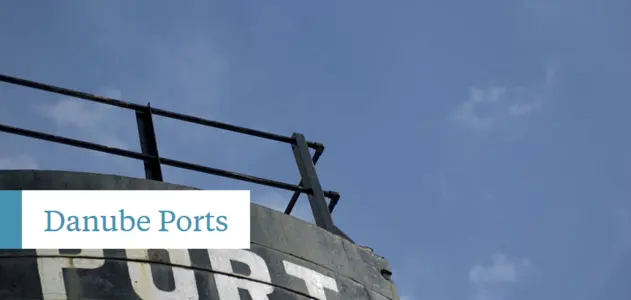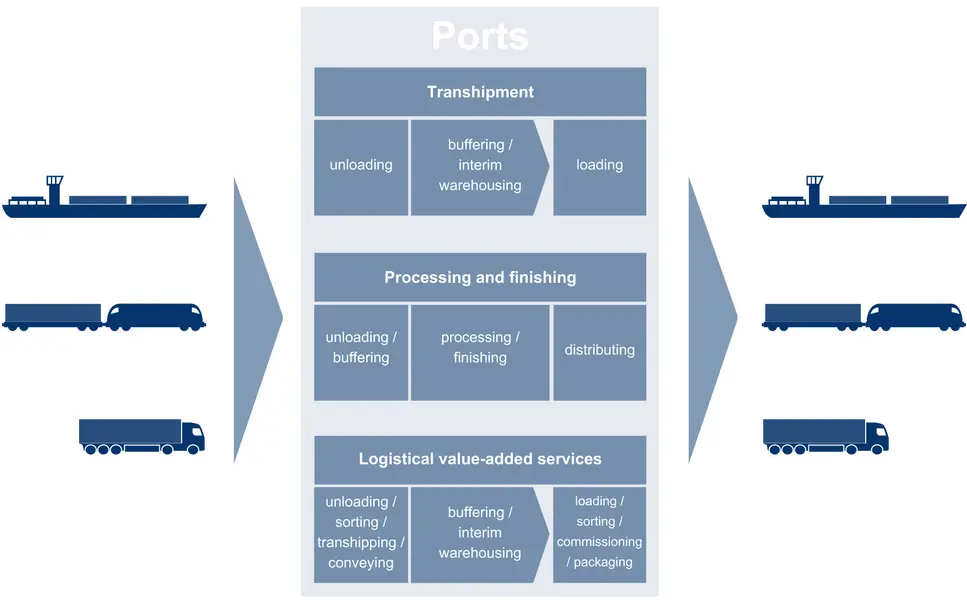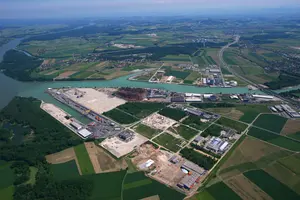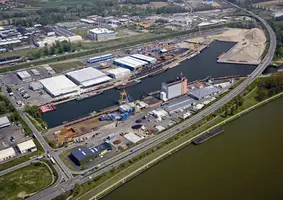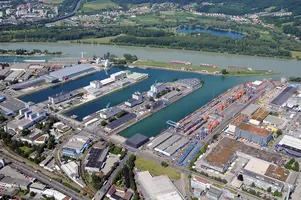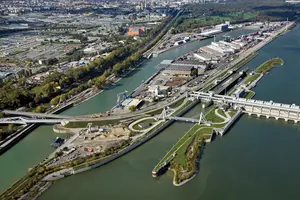The online directory “Danube Ports Online”, which is operated by viadonau, provides technical and economic data as well as contact persons for the ports and terminals in the Danube region www.danubeports.info.
Ports are facilities for the transhipment of goods that have at least one port basin. Transhipment points without port basin are known as transhipment sites. A terminal is a facility of limited spatial extension for the transhipment, storage and logistics of a specific type of cargo (e.g. container terminal or high & heavy terminal). A port or transhipment site may dispose of one or more terminals. A port, a transhipment site or a terminal can be operated by a public or a private entity. The services at a transhipment point are often provided in cooperation between public and private actors.
Ports and transhipment sites connect the transport modes of road, rail and waterway and are important service providers in the fields of transhipment, storage and logistics. In addition to their basic functions of transhipment and storage of goods, they also often perform a variety of value-added logistics services to customers, such as packaging, container stuffing and stripping, sanitation and quality checks. This enhances ports as logistics platforms and impetus sources for locating companies and boosting the economy. As multimodal logistics hubs, they act as a central interface between the various modes of transport.
The Interessensgemeinschaft Öffentlicher Donauhäfen in Österreich (IGÖD), a community of interests made up of the four Austrian public Danube ports of Linz, Enns, Krems and Vienna, represents the ports at an international level. Its basic tasks are the support and lobbying for common interests in transport, waterway and port development as well as the exchange of opinions and information among its members (www.igoed.at).
